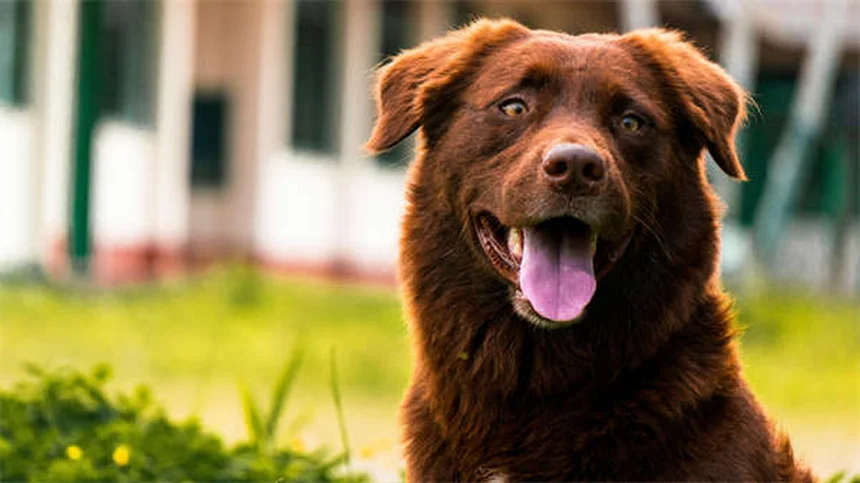What is rectal prolapse in ferrets? The answer is: it's when part of your ferret's rectum sticks out through their anus - and yes, it's as uncomfortable as it sounds! We see this most often in young ferrets between 2-6 months old, and it usually happens because they're straining too hard during bowel movements. The good news? With proper vet care, most cases can be fixed completely.
You'll know something's wrong when your fuzzy friend starts straining painfully during potty time. Sometimes you might see tissue peeking out (that's incomplete prolapse), or in more serious cases, a persistent mass of tissue that won't go back in (complete prolapse). If that tissue turns dark colors, that's your cue to get to the vet immediately - it means blood flow might be compromised.
As ferret owners ourselves, we know how scary this can look. But here's what you need to remember: this is treatable, especially when caught early. Your vet will likely use a combination of gentle massage, special solutions, and sometimes stitches to get everything back where it belongs. The key is addressing whatever's causing the straining - whether it's parasites, infection, or other digestive issues.
E.g. :Canine Distemper in Ferrets: Symptoms, Treatment & Prevention
- 1、What Exactly Is Rectal and Anal Prolapse in Ferrets?
- 2、Why Does This Happen to My Fuzzy Friend?
- 3、How Will the Vet Solve This Mystery?
- 4、Post-Op Care: Your Important Role
- 5、When to Panic (And When Not To)
- 6、Funny But True Ferret Facts
- 7、Your Action Plan
- 8、Understanding Ferret Anatomy and Why Prolapse Happens
- 9、Beyond the Basics: Lesser-Known Causes
- 10、Treatment Options You Might Not Know About
- 11、Nutrition's Role in Prevention and Recovery
- 12、Behavioral Signs You Should Never Ignore
- 13、Creating a Ferret-Friendly Environment
- 14、FAQs
What Exactly Is Rectal and Anal Prolapse in Ferrets?
The Basics You Need to Know
Picture this: your ferret's rectum decides to take an unexpected vacation outside its body. That's essentially what rectal or anal prolapse is - when part of the rectum peeks out through the anus. Anal prolapse is like a shy guest showing just the lining, while rectal prolapse brings the whole tissue party outside!
This condition mostly crashes the party in young ferrets (2-6 months old). Adult ferrets? They're usually too cool for this particular problem. Why does it happen? Well, let's just say when digestive, urinary, or reproductive systems throw a tantrum, this can be the dramatic result.
How to Spot the Problem
Your ferret will tell you something's wrong - not with words, but with actions. You'll notice them straining painfully during bathroom time. There are two versions of this show:
Incomplete Prolapse: Like a peek-a-boo game - tissue appears during potty time, then disappears.
Complete Prolapse: The tissue stays out for an extended performance, possibly turning dramatic colors like black, blue, or red if it's been going on too long.
Why Does This Happen to My Fuzzy Friend?
 Photos provided by pixabay
Photos provided by pixabay
The Usual Suspects
Imagine your ferret pushing too hard during bathroom time - that's one way this starts. But the backstage causes are more interesting:
| System | Possible Culprits |
|---|---|
| Digestive | Diarrhea, worms, inflamed intestines |
| Urinary/Reproductive | Prostate issues, bladder stones, difficult birth |
| Other Troublemakers | Constipation, intestinal pouches, tumors |
Surgery Side Effects
Did your ferret recently have digestive system surgery? That could be the backstage pass that let this condition in. The body sometimes reacts unpredictably to medical procedures.
How Will the Vet Solve This Mystery?
The Detective Work Begins
Your vet will turn into Sherlock Holmes for your ferret. Expect:
- Full physical exam (nose to tail inspection)
- Blood and urine tests (the lab coat investigation)
- X-rays or ultrasound (the high-tech peek inside)
- The famous "glove exam" (yes, that one)
Ever wonder why vets need stool samples? Here's why - they're looking for microscopic party crashers (parasites) that might be causing all this trouble.
 Photos provided by pixabay
Photos provided by pixabay
The Usual Suspects
First things first - if there's an infection or parasite invasion, that gets tackled first with antibiotics or dewormers. Then comes the main event:
1. Swelling reduction: Think of it like convincing inflated tissue to go back home. This might involve gentle massage or special solutions (like 50% dextrose - basically really thick sugar water).
2. Pain management: Your vet might use an epidural because, let's face it, nobody likes butt pain - not even ferrets.
3. The stitch solution: Sometimes the vet uses "purse string" sutures (yes, like on a purse) to keep everything in place but loose enough for... well, you know.
Post-Op Care: Your Important Role
The First Week Watch
For 5-7 days after treatment, you're on butt watch. Why? Because stitches might pop if your ferret pushes too hard during bathroom time. And speaking of bathroom time...
Your ferret might have some accidents. Wouldn't you if you just had butt surgery? Be patient, provide easy access to litter boxes, and maybe keep some cleaning supplies handy.
Long-Term Management
Here's a question you might be wondering: "Will this happen again?" The answer is - it depends on the underlying cause. If it was parasites and you've treated them properly, probably not. But if it's due to chronic conditions, you'll need to manage those.
Another common question: "How can I prevent this?" Good diet, regular vet check-ups, and watching for signs of straining can all help keep your ferret's rear end where it belongs.
When to Panic (And When Not To)
 Photos provided by pixabay
Photos provided by pixabay
The Usual Suspects
If you see black or blue tissue protruding, that's an emergency - it means blood flow might be compromised. Same if your ferret seems in extreme pain or stops eating. These are "vet now" situations.
Normal Recovery Signs
A little swelling? Expected. Some discomfort? Normal. Occasional accidents? Part of the process. Just keep following your vet's instructions and providing TLC (Tender Loving Care, not the singing group).
Funny But True Ferret Facts
Weird Body Quirks
Did you know ferrets have such flexible spines they can turn almost completely inside out? That's why they can get into such tight spaces - and maybe why their insides sometimes decide to go exploring too!
Ferrets vs. Other Pets
While we're talking about prolapses, here's an interesting fact: ferrets are more prone to this than cats but less than some dog breeds. Nature's way of keeping us all on our toes!
Your Action Plan
Prevention Checklist
- Deworm regularly (as your vet recommends)
- Watch for signs of straining
- Maintain good hydration
- Feed quality ferret food
Emergency Kit
Smart ferret owners keep:
- Vet's emergency number handy
- Soft towels (for gentle restraint if needed)
- Sugar water solution (vet can show you how to make it)
- Travel carrier (always ready to go)
Remember, while this condition sounds scary, with prompt vet care most ferrets recover completely. Your job is to notice early and act fast - your fuzzy friend is counting on you!
Understanding Ferret Anatomy and Why Prolapse Happens
The Unique Design of Ferret Digestive Systems
Ferrets have this crazy short digestive tract - we're talking food goes from entrance to exit in just 3-4 hours! That's why you see them eating small meals constantly throughout the day. This rapid digestion is great for their high metabolism, but it also means when things go wrong, they go wrong fast.
Imagine a water slide with too much pressure - that's kind of what happens during prolapse. The muscles and tissues just can't handle the strain. While we're on the subject, did you know ferrets have scent glands near their anus? That's why they have that distinctive musky odor - nature's way of saying "I was here!"
Common Misconceptions About Prolapse
Some folks think this only happens to sick or weak ferrets. Not true! Even perfectly healthy ferrets can experience prolapse if the conditions are right. Another myth? That it's always caused by constipation. While that's one cause, as we saw in the table earlier, there are dozens of potential triggers.
Here's something that might surprise you - female ferrets are actually more prone to reproductive-related prolapse than males. That's because their reproductive system goes through dramatic changes during heat cycles. Speaking of which, did you know unspayed female ferrets can stay in heat indefinitely until they mate? That's why spaying is so important!
Beyond the Basics: Lesser-Known Causes
Environmental Factors You Might Not Consider
Ever seen your ferret do the "butt scoot" across the floor? While it might look funny, this could be a sign of anal gland issues that might lead to prolapse. Other sneaky causes include:
- Dehydration: Makes stool harder to pass
- Stress: Changes in environment can affect digestion
- Improper litter: Some materials can irritate sensitive areas
You know what's really wild? Some ferrets develop prolapse from playing too rough! That's right - excessive jumping or twisting motions can sometimes put enough strain on the body to cause problems. Who knew playtime could turn dangerous?
Genetic Predispositions Worth Knowing
Just like some families have a history of certain health conditions, some ferret bloodlines seem more prone to prolapse than others. If you're getting a ferret from a breeder, it's worth asking about the family health history.
Marshall Farms ferrets, which make up most of the pet ferrets in the US, actually have some known genetic quirks. They're typically descented and spayed/neutered before sale, which affects their hormone balance. Could this contribute to prolapse risk? Some vets think so!
Treatment Options You Might Not Know About
Alternative Approaches When Surgery Isn't an Option
Sometimes surgery isn't possible right away - maybe your ferret is too weak, or you're waiting for an appointment. In these cases, some temporary measures can help:
- Sugar paste: Sounds sweet, but it actually helps reduce swelling
- Warm compresses: Gentle warmth can relax the muscles
- Manual reduction: Only with vet guidance - don't try this at home!
Here's an interesting fact - some vets use honey instead of sugar solutions! Raw honey has natural antibacterial properties that can help prevent infection while reducing swelling. Just make sure it's veterinary-grade honey if you're going this route.
Physical Therapy for Recovery
After prolapse treatment, some ferrets benefit from gentle physical therapy to strengthen their pelvic muscles. This might include:
- Controlled play sessions
- Massage techniques
- Hydrotherapy (yes, ferret swimming!)
Would you believe some ferrets actually enjoy their rehab sessions? With the right approach, these can become bonding experiences that help your fuzzy friend recover faster while having fun.
Nutrition's Role in Prevention and Recovery
The Best and Worst Foods for Ferret Digestion
Ferrets are obligate carnivores, meaning they need meat - lots of it! Here's a quick guide to ferret-friendly foods:
| Great Choices | Foods to Avoid |
|---|---|
| High-quality ferret kibble | Fruits and vegetables |
| Raw or freeze-dried meats | Dairy products |
| Eggs (cooked or raw) | Grains and cereals |
During recovery, your vet might recommend adding some pumpkin puree (not pie filling!) to help regulate digestion. It's one of the few plant-based foods ferrets can sometimes tolerate in small amounts.
Hydration - The Overlooked Hero
Ferrets are notoriously bad at drinking enough water. Try these tricks to keep them hydrated:
- Multiple water stations around their space
- Shallow bowls instead of bottles (easier to drink from)
- Adding water to their food
- Occasional meat broth treats (no onions or salt!)
Did you know a dehydrated ferret's skin will stay tented if you gently pinch it? That's a quick hydration test you can do at home if you're concerned. Just don't overdo it - your ferret won't appreciate becoming a science experiment!
Behavioral Signs You Should Never Ignore
Subtle Clues Before Prolapse Occurs
Before full prolapse happens, ferrets often show warning signs most owners miss:
- Increased licking of the anal area
- Changes in litter box habits
- Unusual postures during elimination
- Decreased appetite or energy
Here's something fascinating - ferrets often try to hide their discomfort. In the wild, showing weakness makes them vulnerable, so they've evolved to mask pain. That's why noticing these subtle changes is so important!
The "Ferret Pain Scale" Every Owner Should Know
Vets use these indicators to assess ferret pain levels:
1. Mild discomfort: Slightly less active, maybe sleeping more
2. Moderate pain: Hunched posture, teeth grinding
3. Severe pain: Vocalizing, aggressive when touched
4. Critical: Complete withdrawal, refusing food/water
Ever notice how ferrets "pancake" when they're relaxed? That flat, spread-out sleeping position is actually a great sign of comfort. When they start curling tightly into a ball while awake, it often means something's wrong.
Creating a Ferret-Friendly Environment
Litter Box Setup for Sensitive Ferrets
The right litter setup can make a huge difference:
- Use dust-free, unscented litter
- Avoid clumping varieties (can stick to sensitive areas)
- Keep boxes clean - ferrets are surprisingly picky!
- Provide multiple boxes in multi-level cages
Here's a pro tip: some ferrets prefer corner boxes while others like open pans. Try both to see what your fuzzy friend prefers. And remember - no sudden changes! Ferrets hate when their bathroom arrangements get rearranged without warning.
Cage Modifications for Recovery
After prolapse treatment, you'll want to make some temporary adjustments:
- Lower or remove high platforms to prevent jumping
- Add extra soft bedding
- Use shallow food and water dishes
- Consider a temporary single-level setup
Would you believe some ferrets actually enjoy their "recovery condo"? With the right setup, they'll feel safe and comfortable while healing. Just don't be surprised if they give you the stink-eye for limiting their acrobatics!
E.g. :Protrusion of the Rectum and Anus in Ferrets | PetMD
FAQs
Q: How can I tell if my ferret has rectal prolapse?
A: You'll notice your ferret straining painfully during bowel movements - that's usually the first sign. With incomplete prolapse, you might see pink tissue peeking out during defecation that goes back in afterward. Complete prolapse looks more dramatic - a persistent mass of tissue protruding from the anus that doesn't retract. The tissue might appear normal at first, but if it's been out too long, it can turn red, blue, or even black. We always tell ferret owners: if you see dark-colored tissue, get to the vet immediately - that's an emergency situation!
Q: What causes rectal prolapse in young ferrets?
A: The most common causes we see in our practice are digestive issues that make ferrets strain too hard. This includes diarrhea (from infections or parasites), constipation, or intestinal inflammation. Young ferrets between 2-6 months are especially prone because their bodies are still developing. Other culprits can be urinary problems like bladder stones or reproductive issues in females after difficult births. Sometimes it even happens after abdominal surgery when the ferret strains during recovery. The key is identifying and treating whatever's making your ferret push too hard.
Q: How do vets treat rectal prolapse in ferrets?
A: First, we treat any underlying infections or parasites with appropriate medications. Then comes the main event - getting that tissue back where it belongs! We often start with gentle massage and special solutions (like 50% dextrose) to reduce swelling. Many ferrets need an epidural for pain relief during this process. For persistent cases, we use "purse string" sutures - special stitches that keep everything in place but still allow bowel movements. The whole procedure typically takes about 30-60 minutes, and most ferrets recover completely with proper aftercare.
Q: Can rectal prolapse in ferrets be prevented?
A: While you can't prevent every case, there are definitely steps we recommend to reduce the risk. First, maintain a good deworming schedule as recommended by your vet. Feed high-quality ferret food to prevent digestive issues, and make sure fresh water is always available. Watch for signs of straining during elimination - catching problems early makes treatment easier. For ferrets recovering from surgery or illness, ask your vet about stool softeners if needed. And of course, regular vet check-ups help catch potential issues before they become serious.
Q: What's the recovery like after prolapse treatment?
A: The first 5-7 days are crucial - you'll need to monitor the surgical site closely for any reopening. Your ferret might have some bathroom accidents during recovery (wouldn't you after butt surgery?), so be patient and keep cleaning supplies handy. We recommend limiting activity and using shredded paper instead of litter for the first week to keep the area clean. Most ferrets bounce back quickly - you'll know they're feeling better when their mischievous personality returns! Just follow your vet's instructions carefully and don't hesitate to call if you have concerns.


